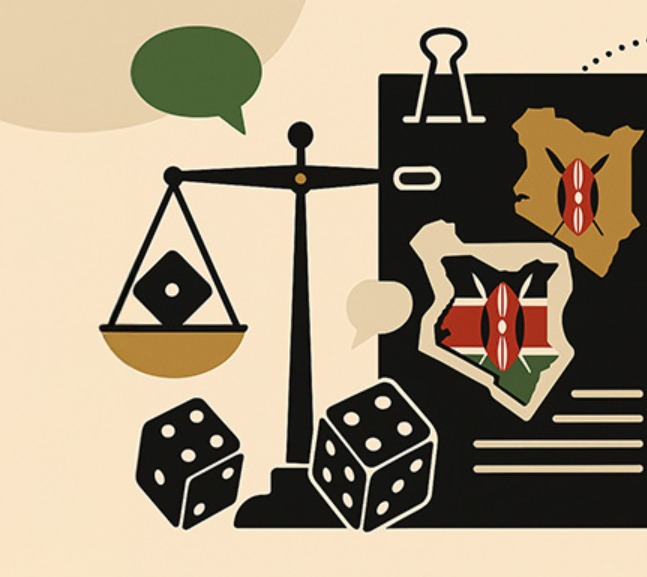
Understanding bonus wagering rules in Kenya can be challenging, often more complex than the games themselves. Many Kenyan players claim bonuses without fully grasping how their bets contribute toward clearing promotional requirements, leading to frustration when withdrawal attempts fail. This comprehensive wagering guide breaks down exactly what counts, what doesn’t, and how to navigate live casino wagering requirements like a seasoned pro.
How contribution percentages work 🔢
Contribution percentages represent the portion of your wager that counts toward completing wagering requirements. When you see “30x wagering” attached to a bonus, you must bet thirty times the bonus amount before withdrawal becomes possible. However, not every shilling you stake contributes equally—this is where contribution rates become critical.
Think of contribution percentages as filters. If live blackjack wagering carries a 10% contribution rate and you bet KES 1,000, only KES 100 counts toward your requirement. Meanwhile, slots typically contribute 100%, meaning that same KES 1,000 stake would fully apply to your rollover. This disparity exists because certain games offer better odds or lower house edges, making it easier for players to clear requirements while maintaining positive expected value.
How calculations actually work 🧮
Let’s walk through a practical scenario. You claim a KES 5,000 bonus with 35x wagering requirements. Your total rollover target becomes KES 175,000 (5,000 × 35). Now examine how different games affect this target:
- Slot play: KES 10,000 wagered × 100% = KES 10,000 toward requirement
- Roulette wagering rules: KES 10,000 wagered × 15% = KES 1,500 toward requirement
- Live blackjack: KES 10,000 wagered × 10% = KES 1,000 toward requirement
- Live baccarat: KES 10,000 wagered × 10% = KES 1,000 toward requirement
The mathematics reveals why slots remain the go-to choice for bonus clearing despite potentially lower entertainment value for some players.
Blackjack/roulette/baccarat vs slots — typical splits ⚖️
The contribution divide between table games and slots reflects fundamental differences in house edge and player advantage. Trusted live casinos structure these percentages carefully to protect their bottom line while still offering attractive promotions. Here’s how the typical landscape looks for Kenyan players:
Slots contribution: Almost universally set at 100%, making them the workhorse of bonus wagering. High RTP wagering on slots means you’re getting full credit while playing games with return-to-player rates often exceeding 96%. Your wagering calculator will show steady progress regardless of whether you’re winning or losing individual sessions.
Table games contribution: Roulette typically contributes 10-20%, though some operators differentiate between bet types. Covering more than 70% of the table often triggers exclusions. Blackjack usually sits at 10% or gets excluded entirely due to its low house edge when played with basic strategy. Baccarat mirrors blackjack at roughly 10% contribution.
Comparison table: Contribution rates across game types
Why these differences matter: When you deposit wagering limits allow for a KES 20,000 bankroll and you’re facing 40x requirements on a KES 5,000 bonus, choosing slots versus live dealer betting rules games changes your completion timeline dramatically.
✅ Best practices:
- Prioritize games with 100% contribution when time-sensitive deadlines loom
- Mix game types strategically—clear 80% through slots, enjoy the final stretch on preferred table games
- Check if video poker or instant games offer better contribution than live tables
- Use session logs to track which games move your progress bar fastest
- Consider deposit wagering limits when planning your clearing strategy
❌ Common mistakes:
- Assuming all roulette bets contribute equally
- Playing blackjack exclusively without checking if it’s excluded
- Ignoring free spins wagering requirements that might have separate contribution rules
- Failing to account for bonus contribution live versus RNG game differences
Ineligible patterns: hedge, even-money loops, low-risk bets 🚫
Casino bonus terms universally prohibit certain betting patterns that reduce risk to near-zero levels. These restrictions exist because operators know that bonus wagering rules can be exploited through strategic hedging—simultaneously betting opposite outcomes to guarantee wagering volume without meaningful risk exposure.
Hedge betting examples: Placing equal amounts on red and black in roulette creates a scenario where you’re guaranteed to break even (minus zero pockets) while technically meeting wagering requirements. Similarly, betting both banker and player in baccarat falls into prohibited territory. Detection systems flag these patterns instantly, resulting in bonus forfeiture.
Even-money loops: Repeatedly betting minimum amounts on even-money propositions (red/black, odd/even, high/low in roulette) while covering significant portions of the table raises red flags. Terms typically specify that covering more than 67-75% of possible outcomes voids bonus eligibility.
“We’ve seen players attempt to hedge their way through bonuses by covering 24 out of 36 numbers on roulette. These strategies are immediately detected and addressed per our terms.” — Compliance officer, major Kenyan operator
Low-risk bet restrictions include:
- Roulette bets covering 19+ numbers simultaneously
- Blackjack insurance bets or side bets with extremely favorable odds
- Any pattern suggesting EV vs wagering exploitation
Reading bonus terms efficiently 📖
Every promotion comes attached to a document most players scroll past without reading—the terms and conditions. This oversight causes more bonus disputes than any other factor. Learning to extract critical information quickly transforms you from a casual player into an informed participant.
Three-step scanning method:
- Eligibility check: Confirm your location (Kenya), payment method, and game preferences aren’t excluded
- Wagering mathematics: Calculate total rollover (bonus × multiplier) and assess feasibility
- Restriction scan: Identify max bet limits, excluded games, time constraints, and contribution percentages
Max bet, time limits, eligible tables and jurisdictions ⏳
Maximum bet restrictions: Most live casino wagering bonuses cap individual bets at KES 100-500 during the rollover period. This prevents “bonus hunting” strategies where players make massive bets hoping for quick clearing. The limit applies per round—a KES 1,000 blackjack hand would breach terms. Interestingly, mobile wagering real money casino rules sometimes differ from desktop limits.
Time limitations: Wagering requirements expire—typically between 7-30 days from activation. A 30-day window sounds generous until you calculate that clearing KES 175,000 in roulette wagering (at 15% contribution) requires nearly KES 1.2 million in actual bets.
Table eligibility: Not all live tables contribute equally. Some operators exclude high-limit tables, VIP rooms, or specific variants (like Lightning Roulette) from bonus play. Always verify which exact tables qualify before starting your session.
Geographic restrictions: While you’re in Kenya, certain games might be licensed for bonus play in some jurisdictions but excluded in yours. Using VPNs to access restricted content violates terms and triggers account closure.
✅ Smart strategies:
- Calculate required daily wagering before accepting (total requirement ÷ days available)
- Set session reminders to maintain consistent progress
- Focus on high RTP wagering games that stretch your bankroll
- Monitor rollover trackers daily to catch calculation errors
- Request deadline extensions from support if circumstances arise
Term traps: excluded side bets, capped winnings 🏷️
Hidden deep within bonus documentation lie clauses that can devastate uninformed players. These “traps” protect operators from exploitation but catch thousands of players off-guard annually.
Excluded side bets: In games like blackjack and baccarat, side bets (Perfect Pairs, Dragon Bonus) often contribute 0% toward wagering despite being part of the same game. Always verify whether your preferred side bets count before incorporating them into strategy.
Capped winnings: Perhaps the most controversial restriction, win caps limit maximum withdrawable amounts from bonus play. You might successfully clear a KES 5,000 bonus, building your balance to KES 50,000, only to discover a KES 20,000 win cap. This particularly affects wagering for VIP players.
Comparison table: Common restrictions across bonus types
Case studies & common pitfalls 🧩
Case study 1: The roulette coverage mistake 🎰
James from Nairobi claimed a KES 10,000 welcome bonus with 35x wagering. Preferring live dealer betting online casino bonus rules over slots, he focused on European Roulette. To minimize losses, James consistently bet KES 200 on red while placing KES 150 on the first and second dozens—covering 32 of 37 numbers. After KES 50,000 in bets, his wagering bar hadn’t moved.
The problem: James’s coverage strategy exceeded the 75% threshold, flagging all bets as invalid. Additionally, his simultaneous bets constituted prohibited hedging.
The lesson: Stick to straightforward bets when clearing requirements. Single-number, street, or simple red/black wagers ensure compliance.
Why your WR didn’t move — examples & fixes 🧯
Common scenario 1: Playing excluded games Many players assume “live casino” includes all dealer-hosted games. However, some game shows (Monopoly Live, Crazy Time) carry 0% contribution. The fix: Cross-reference your game choice against the eligible games list in bonus terms.
Common scenario 2: Exceeding max bet A single bet above the stated limit can void your entire bonus. The fix: Set personal limits below the official cap—bet KES 450 maximum if the limit is KES 500.
Common scenario 3: Bonus not activated Some promotions require manual activation through account settings. The fix: Check your bonus status immediately after depositing.
Diagnostic checklist when WR isn’t progressing ✓
- Verify bonus is “active” in your account dashboard
- Confirm current game contributes >0%
- Review last 10 bets to ensure none exceeded max bet
- Check for prohibited patterns (hedging, excessive coverage)
- Verify no side bets are included in wager amounts
- Contact support with specific bet IDs for investigation
Tooling & tracking 📊
Professional players distinguish themselves through meticulous record-keeping and strategic use of available tools. Understanding which tools provide genuine value helps streamline your live casino wagering experience.
Session logs, rollover trackers, exportable receipts 🗂️
Built-in session logs: Most reputable platforms offer transaction history accessible through your account dashboard. These logs detail every bet placed, including timestamp, game, stake amount, and contribution toward wagering. Review these logs after each session to spot irregularities.
Third-party rollover trackers: Several applications help monitor bonus progress across multiple platforms. Their value lies primarily in projection—calculating estimated completion dates based on current playing patterns.
Exportable receipts: The ability to download your gaming history as CSV or PDF files proves invaluable during disputes. Request exports regularly, particularly before bonuses expire.
“Players who track metrics outperform those who don’t by nearly 40% in bonus completion rates. Data removes guesswork and keeps you accountable to deadlines.” — Gambling analytics researcher
Performance comparison: Tracking methods
✅ Must-have capabilities:
- Real-time wagering requirement updates
- Game-specific contribution percentage reference
- Deadline countdown with daily target recommendations
- Mobile accessibility for on-the-go monitoring
❌ Features to avoid:
- Tools requiring deposit or subscription fees
- Software requesting direct casino login credentials (security risk)
- Bots or automation tools (violate terms)
FAQ ❓
Do live game shows contribute to wagering? 🎤
Live game shows like Crazy Time and Monopoly Live typically carry reduced contribution rates or are completely excluded from bonus wagering rules. Most operators assign 0-25% contribution rates to these entertainment games with higher volatility.
Why did my live bets not move the WR bar? 🧮
Several factors could prevent contribution: the game might be excluded, you may have exceeded the maximum bet limit, prohibited betting patterns like hedging could be detected, or your bonus might not be properly activated. Always verify your bonus status in the account dashboard and confirm game eligibility in casino terms explained documentation.
Are side bets eligible for rollover? 🎲
Side bets in blackjack (Perfect Pairs, 21+3) and baccarat (Dragon Bonus) are usually excluded from contributing toward wagering requirements. Operators exclude these because side bets typically carry higher house edges, making them less suitable for bonus clearing.
What happens if I exceed the max bet? 🚨
Exceeding the maximum bet limit during active bonus play typically results in immediate forfeiture of your bonus and any winnings accumulated. Most platforms detect violations automatically, voiding your bonus balance instantly. Even a single accidental over-bet can trigger these consequences.

